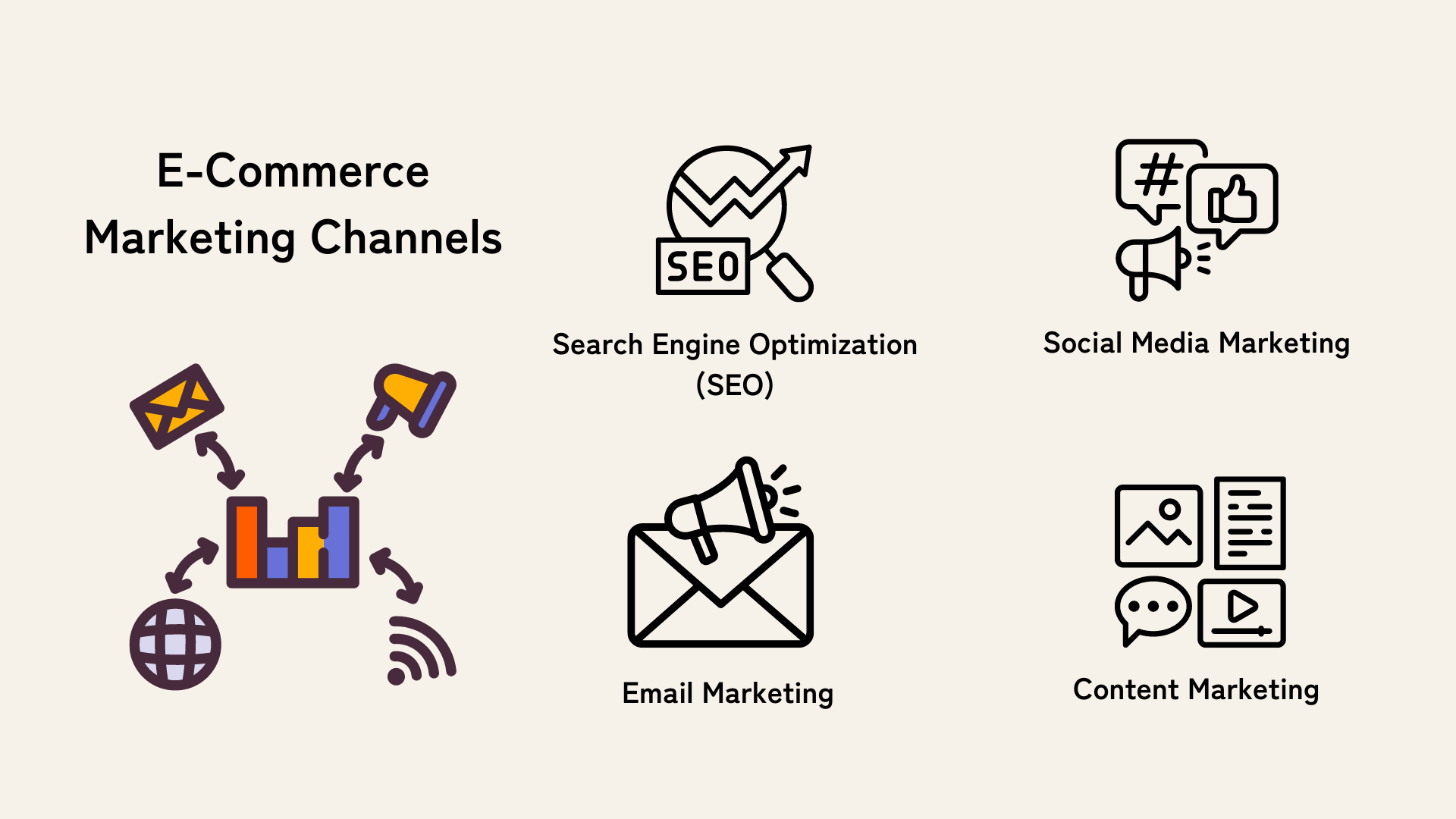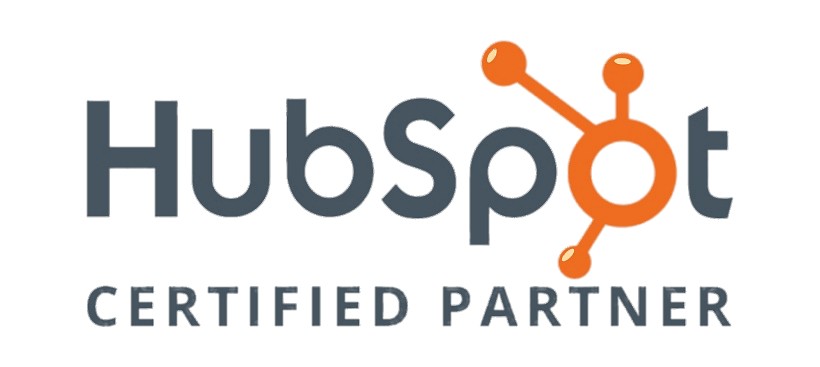Introduction
Emerging technologies have given birth to the digital era, impacting every sphere of life, including business.
One segment that has experienced significant transformation is commerce, specifically through the rise of e-commerce.
In such an evolving landscape, understanding e-commerce marketing becomes crucial for business success.
E-commerce marketing involves using promotional tactics to drive traffic to your online store, converting that traffic into paying customers, and retaining those customers post-purchase.
It leverages digital content, social media platforms, search engines, and email campaigns to attract visitors and facilitate purchases online.
The benefits of e-commerce marketing are manifold. It allows businesses to reach a global audience, offers personalized marketing, ensures convenience, and most importantly, it's cost-effective.
Having an effective e-commerce marketing strategy can drastically enhance your customer base and significantly boost your sales.
What is E-Commerce Marketing
E-commerce marketing is the process of promoting and selling products or services through online channels.
This digital marketing approach is crucial for businesses that operate primarily on the internet. Its primary goals are creating awareness about your online store, attracting visitors, converting them into customers, and maintaining their loyalty post-purchase.
E-commerce marketing leverages a variety of tactics and platforms to achieve these goals. Prominent strategies include search engine optimization (SEO), pay-per-click (PPC) advertising, social media marketing, content marketing, and email marketing.
These strategies help your online store become more visible, accessible, and engaging to potential customers.
Read Understanding eCommerce: A Comprehensive Guide
The Importance of E-commerce Marketing
The e-commerce space is highly competitive. Thousands of online stores may be selling products similar to yours. So, how do you stand out? The answer lies in effective e-commerce marketing.
E-commerce marketing not only helps to attract new customers but also fosters customer loyalty. It enables businesses to extend their reach beyond their local demographics, opening up opportunities to a global customer base.
Moreover, implementing effective digital marketing strategies enhances brand recognition and helps shape consumers' perception about your brand.
The Benefits of E-commerce Marketing
E-commerce marketing offers an array of benefits that can propel your online business towards success. Let's delve into some prominent advantages:
1. Wide Reach: Unlike traditional brick-and-mortar stores that are limited by geographical boundaries, e-commerce stores can reach customers globally.
For instance, a small art boutique can sell its unique paintings not only to local patrons but also to art lovers worldwide. According to Statista, global e-commerce sales accounted for 14.1% of total retail sales in 2019, projected to reach 22% by 2023.
2. Cost-Effective: Marketing strategies in e-commerce are typically more economical and agile compared to traditional marketing tactics.
Sending an email campaign is considerably less expensive than running a TV ad, and you can quickly iterate your strategy based on customer response.
3. Personalized Customer Experience: With data from customer behavior and preferences, e-commerce marketing can provide a more personalized experience.
For example, Amazon uses previous purchase data and browsing history to recommend products, creating a personalized shopping experience that traditional retailers struggle to emulate.
4. 24/7 Availability: Online stores are open all the time. Customers from any timezone can shop at their convenience, increasing potential sales opportunities.
A KPMG report found that the ability to shop 24/7 is a key motivator for online shoppers.
5. Measurable Results: Unlike traditional marketing, e-commerce marketing efforts are easier to track and measure using tools like Google Analytics.
You can monitor click-through rates, conversion rates, and bounce rates to understand your campaign's effectiveness and make data-driven decisions.
Through these benefits, e-commerce marketing can dramatically enhance your brand's visibility, broaden your customer base, and boost your sales, making it an essential strategy for businesses in the digital age.
Understanding E-commerce Marketing Channels

Let's delve into the different channels through which you can implement e-commerce marketing:
1. Search Engine Optimization (SEO)
SEO is about improving your online store's visibility in search engine results. Through keyword optimization, building high-quality backlinks, and enhancing site UX, your website can rank higher on search engine results, making it easier for potential clients to find your products or services.
It ensures your website is easily discoverable by users who are searching for products that your business offers.
SEO works by aligning your website content with what potential customers are searching for. The better you can match your content to users' search queries, the higher your website is likely to rank, enhancing its visibility to more users.
Here are some strategies to use SEO effectively:
- Keyword Optimization: Keywords are the words and phrases that users type into search engines. Identifying and incorporating relevant keywords in your site's content can make it more discoverable. For example, if you're selling handmade leather wallets, you might optimize for keywords like "handmade leather wallets" or "quality leather wallets online."
- Site User Experience: SEO isn't just about keywords but also the overall user experience. A website that's easy to navigate and fast to load enhances user experience and can help improve your search engine rankings.
- High-quality Content: Google and other search engines favor sites that provide valuable content to users. Regularly updating your website with informative, interesting, and high-quality content can help boost your SEO.
2. Social Media Marketing
Social media marketing involves using social networking sites like Facebook, Instagram, Twitter, and Pinterest to promote your products, communicate with customers, and build brand recognition.
With billions of users worldwide, social media provide excellent venue for promoting your brand and products.

Here are some actionable strategies to utilize social media marketing effectively:
- Choose the Right Platform: Different platforms attract different demographics. Research to identify where your target customers spend most of their time. For instance, if your target market is millennials, platforms like Instagram and TikTok could be beneficial.
- Share Engaging Content: Provide valuable and engaging content to your audience—share product updates, behind-the-scenes snapshots, or user-generated content. A clothing brand might share style tips and outfit inspiration on Instagram.
- Engage With Your Audience: Social media is all about interaction. Respond to comments, host live Q&A sessions, or organize contests to boost engagement.
- Incorporate Paid Advertising: Paid ads on social media can complement your organic efforts and enhance reach. You can target ads based on demographics, interests, and more, ensuring they reach the right audience.
3. Email Marketing
Email marketing allows you to update your email subscribers regularly about your company. This fosters a relationship unlike any of the other types of digital marketing.
It gives you a direct line to your customers' email inboxes enabling personalized communication.
Its primary goal is to encourage customer engagement, enhance brand loyalty, and promote products, leading to sales conversions.
Here are practical strategies to make the most out of your email marketing initiatives:
- Build Your Email List: Start by collecting email addresses. You can offer incentives such as discount coupons to visitors who sign up for your newsletter.
- Send Welcome Emails: Once someone subscribes, send a personalized welcome email. It's a good opportunity to provide an introductory offer and summarize what they can expect from your emails.
- Segment Your Audience: Not all customers are the same. Segmenting them based on factors like purchase history, demographics, and location can make your emails more relevant and drive better results.
- Regular Newsletters: Regularly updating your customers about new products, sales, or relevant content can keep your brand at the top of their mind.
4. Content Marketing
Content marketing is the creation and promotion of content with an aim to generate brand awareness, traffic growth, and lead generation.
It involves creating and sharing valuable content to attract and engage a target audience, ultimately driving profitable customer action.
It serves as a powerful tool for building trust, educating consumers, driving your website traffic, and improving conversions.
Here are actionable content marketing strategies:
- Understand Your Audience: Tailor your content to suit the needs and interests of your target audience. This enhances the relevance and value of the content, increasing its potential to attract and engage readers.
- Develop a Blog: Blogs offer a great way to share useful information related to your industry and product offerings. If you're a fitness e-commerce store, publish workout plans, nutrition tips, and supplement guides.
- Incorporate Various Formats: Don’t limit yourself to just written content. Videos, how-to guides, infographics, and podcasts can also be very effective. Ensure your content is engaging, insightful, and adds value to your audience.
- SEO-friendly Content: Use SEO techniques to ensure your content is discoverable on search engines. Include relevant keywords, use meta tags, and have a clean URL structure.
- Promote Your Content: It's not enough to just create content – promotion is equally important. Share your content through social media, email marketing, or influencer partnerships.
Conclusion
E-commerce marketing plays an instrumental role in the success of your online business. It offers an avenue for reaching out to prospective customers, retaining existing ones, and ultimately driving revenue growth.
As outlined, channels such as SEO, Social Media, Email Marketing, and Content Marketing can all form part of a robust e-commerce marketing strategy.
Adopting these strategies will take your e-commerce business forward in leaps and bounds. However, remember that success takes time, and so does mastering marketing strategies.
Persevere and evaluate your methods continuously for improvisation. The digital world is full of opportunities; harness them well, and you’ll be on the path to e-commerce success.
So, step into the realm of e-commerce marketing, and let your journey towards success begin!








